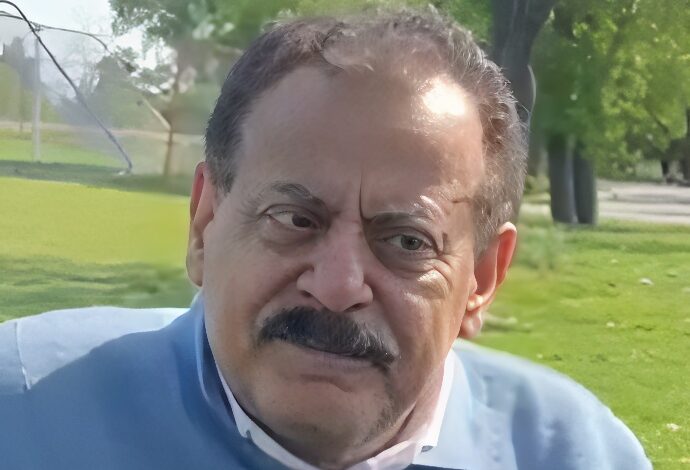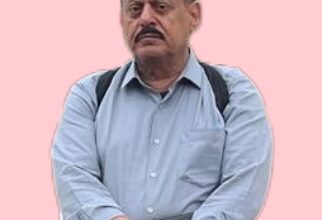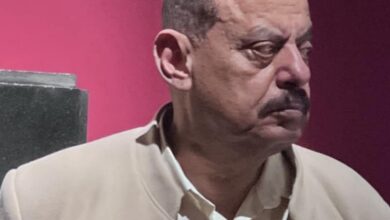My Expulsion from School

Yemeni mp
Ahmed Saif Hashed
I was expelled from Martyr Najeeb School in the center of Tor al-Baha for approximately two weeks, or perhaps even less. This expulsion was initially indefinite, intertwined with administrative and psychological pressure aimed at forcing me to confess to my actions. However, I did not confess, despite the evidence against me.
I left Al Wahdah school following a curse I hurled at it, inciting the wrath of the head teacher, who abandoned his desk in an attempt to chase after me. But my legs were swifter than his, and I never returned, unleashing my curse in a moment of intense emotion. It struck only me, leaving no one else affected.
The difference in my initial departure lay in the impulsiveness of that moment, which played a crucial role. My stubbornness also contributed to my refusal to seek reconsideration, and my father was not keen on my return; he preferred that I study in different classes rather than revisit the situation.
As for my two-week expulsion from Martyr Najeeb School during my first preparatory year, it was enforced by the school principal, Abdu Ali Al-Zughair. This decision was a culmination of psychological pressure, intended to compel me to confess and implicate myself and others. More importantly, the accusation and expulsion came after patience and investigation, marked by cunning.
* * *
Jamil Qaid Saleh was one of my closest friends at Martyr Najeeb School in Tor Al-Baha. We shared a profound bond, perhaps due to our mutual need for companionship, or perhaps stemming from a sense of alienation in our environment, or simply due to the harmony of our personalities and temperaments.
We agreed to draft a manifesto, purchasing sheets of white paper and cutting them into equal pieces. Since my handwriting was more attractive than my friend’s, I took on the task of writing. What we agreed upon succinctly addressed the issue of one student assaulting another. Our motives were honorable, yet what we wrote was disrespectful, containing slander and defamation. We secretly distributed these leaflets in the market and the hallways of the school.
The school principal was informed about some of the leaflets that had been found, and perhaps he sent someone to collect the remaining ones scattered about. An investigation ensued, delving into their letters, words, handwriting, and the style of writing, with considerable effort exerted to identify the author. This inquiry lasted several days; I cannot recall how many, but perhaps a week passed since their writing and distribution.
The investigation proceeded with great interest and secrecy, while my friend Jamil and I believed the matter had been resolved. There was not even the commotion we had hoped for to bring attention to our manifesto, and we remained unaware of any actions stemming from its circulation.
What Jamil and I did may have been reckless, even childish. I suspect the principal acted with greater wisdom and a profound sense of responsibility regarding the situation. His discretion and the seriousness with which he approached the investigation were commendable. If there were any criticism to be made, it was that he did not investigate the validity of the claims made in the manifesto. While our actions were undoubtedly foolish, perhaps some inquiry was conducted, though we were never made aware of it. His conduct seemed prudent and wise, executed at minimal cost and without causing a stir. Perhaps the principal, Abdu Ali Al-Zughair, was entirely justified.
But how did the principal discover that I was the author of this manifesto? This question haunted me! It was a confusion that gripped me until I learned something that alleviated part of it, though some uncertainty still lingers to this day.
I had taken to writing my assignments and answering questions by imitating my classmate Mustafa al-Fadhli’s handwriting. His script was beautiful, with an alluring charm that captivated me. I endeavored to mimic his exquisite and enchanting style. Mustafa had a distinctive way of writing the letter “هـ,” forming it into two interlocking circles, one large and the other small. I adopted his unique manner, and this became the flaw that revealed what I was trying to conceal, or perhaps it was the thread that led to the evidence, if not the evidence itself.
One evening at seven, as I was engrossed in my homework in the dormitory, the school principal approached quietly, his footsteps barely audible. When I finally lifted my head after a few minutes and looked up, I saw him standing there, scrutinizing what I was writing. The truth is, it never crossed my mind that this was connected to the search for the author of the manifesto. I wondered why he had singled me out among everyone else. It didn’t seem like a coincidence! How had he found his way to me and not anyone else? This mystery lingered in my mind throughout my ordeal.
After a hasty glance at my notebook, he took it with him and said, looking startled, “Follow me to the administration.” In truth, I had no idea this was related to the manifesto, and astonishment filled my face. I had not anticipated that anyone would identify my handwriting among hundreds of students! I couldn’t fathom how he had chosen me from the dozens of students who were studying in the dormitory at that moment. How had he traced me to the author of the manifesto within days, or at most a week, without my knowledge or that of my friends? This was a source of confusion and questioning for me.
Upon reaching the administration office, the principal received me like a serious investigator. He was calm and utterly convinced that I was the author of the manifesto—no one else! He just wanted to know who had collaborated with me, encouraged, or incited me to write it. He held a firm belief that I was the author, while I vehemently denied it, insisting on my innocence, despite the fact that I felt exposed, as if laid bare. Perhaps I wasn’t good at lying, but I was steadfast in my denial.
By insisting on my denial, I put him in a position of challenge. He, too, wanted to hear my confession personally, even though everything was crystal clear in his mind, as well as in my hidden conviction. When he laid out the comparison between my handwriting and that of the manifesto, presenting evidence and proof, he demonstrated how the letter “هـ” was identical in both the manifesto and my notebook, even in the homework I was writing at that moment. He stood there, observing the words I penned, then moved on to other letters and words, hoping I would yield and confess the details. He awaited my breakdown or surrender, having built a strong and compelling case that only a denier could dispute. And indeed, I was that denier.
I stubbornly insisted that I was not the author, without considering offering any evidence or justification to support my denial. “One who lacks something cannot give it,” and I was indeed lacking. At the same time, I knew that admitting my guilt would drag me into a myriad of details, with the foremost being the identification of my accomplice.
I didn’t even attempt to defend myself by suggesting that I was not the only one who wrote the letter “هـ” in that manner. This could have implicated my classmate Mustafa Al-Fadhli, even though he was completely unaware of what Jamil and I had planned and executed.
I also found it inconceivable to throw my friend Jamil under the bus. I felt that doing so would make me a coward and a base traitor, as I cherished a strong bond of friendship with him—one that I was unwilling to sacrifice, no matter the cost dictated by my honor.
During the interrogation, the principal attempted to coax a confession from me by softening the consequences. He even tempted me with the notion that he could absolve me of any punishment, placing the blame solely on my accomplice, whether one or more. I felt that I would lack honor and manhood if I simply told him that I was not the only one writing the letter “هـ” in that way. It felt utterly despicable to defend myself by naming my friend Mustafa, who was completely innocent of the situation. I preferred to persist in my denial, even though it did nothing to clear my name.
Many questions plagued me: Why was I the only one being investigated? Why had no one else, including Mustafa, faced scrutiny, despite his well-known handwriting and distinctive in writing the letter “هـ” Why me, when my friend Mustafa was the original and creative one, while I was merely an imitator? How could the principal overlook the original and capture someone beneath him? How did he know that this handwriting was mine among hundreds of students in the same school? I had no idea that he had taken the notebooks of any student to compare their handwriting to the manifesto! How did he deduce that I was the one who wrote it among the possibility of more than a hundred students in the dormitory? I concluded that it was impossible for this to be mere coincidence!
My stubborn denial persisted, and every attempt at intimidation or persuasion by the principal during the interrogation failed, including threats to refer me to the criminal investigation department. Instead, he opted to expel me from school without specifying a duration while simultaneously forbidding me from leaving the dormitory, keeping the door slightly ajar for me to confess whenever I felt inclined.
My expulsion lasted two weeks, perhaps even less. The most I learned was that “Al-Shar’ie,” who was responsible for managing the cultural center, was among those who found my leaflets and collected them discreetly with others from the market and nearby squares.
Every day or every few days, the principal tried to summon me, checking whether I intended to confess or reconsider my denial, but to no avail. After two weeks of failing to extract a confession from me or anyone else, he settled for the two weeks as an administrative punishment and allowed me to return to my studies. The matter concluded there. Nonetheless, I recognize the principal’s shrewdness and wisdom, his skills as a successful investigator, and even more, his excellence as an educator.
* * *






